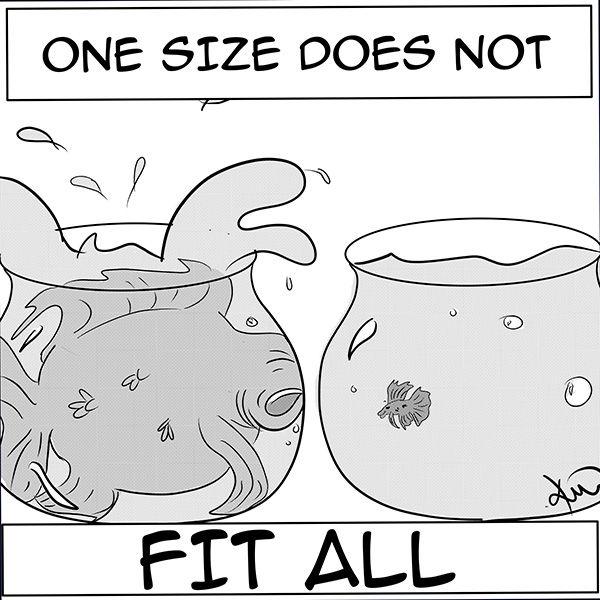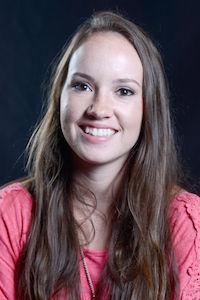I am white, and I grew up in the South. Like it or not, these attributes cause certain people to confide in me with things they wouldn’t if I were not white and of a perceived cultural group. Slurs about race, religion and homosexuality litter conversations, unfortunately, on a daily basis even though I don’t want to hear them. I can’t count the times that people have confessed to me ideas or thoughts that are super discriminatory.
It is Diversity Education Week “revisited” at NC State, and these common exchanges that I encounter highlight why diversity education is so important on our campus. Talking about many of the diversity issues is hard on a campus that is 73 percent white, 56 percent male, 87 percent from North Carolina and only 22 percent low-income. For the majority of the student body, many diversity issues just aren’t their stories to tell.
I do have a story to tell — it’s a story that happens at brunch on Sunday morning, at parties, in my kitchen or while studying for a test. During these times, people tell me racist, homophobic and just generally discriminatory nonsense because of my perceived cultural group. This gives me a clear look into how a lot of NC State’s diversity education efforts have failed with a lot of our student body.
It’s not enough for us to be satisfied as long as there aren’t many overtly discriminatory things happening on campus. There are many insidious, “kind of racist” people who are plaguing our campus, who often go unnoticed because their opinions are not offensive enough to gain attention.
You probably are familiar with the type, and Huffington Post writer, Zeba Blay, chronicled the diverse and subtle nature of different brands of racism. Blay lays out 11 different types of racism that many overlook because they are not of the blatant, cross-burning, stereotypical type. Instead, Blay discusses the “I have a black friend” racist, the “color blind” racist, the “not all white people” racist, the “voyeuristic” racist, the “I did a semester in Africa” racist and the “Twitter racists who will attack me for this article” racist. All of these types of racism are why it is difficult to talk about diversity. We can’t generalize problems because it manifests in so many different ways that very few actually identify as having racist attitudes.
These diverse and hard-to-pinpoint ideologies transcend racism and spread to homophobia and religious intolerance. For example, the “I don’t mind gay people, but I’m positive all of them want to sleep with me” homophobia, or the “I will not watch a movie or TV show depicting people of the gay community because it makes me too uncomfortable” homophobia, the “I can’t be friends with atheists and in fact think they are all horrible people” religious discrimination and the “I still think President Barack Obama is a Muslim and think he should be kicked out of office because of that” religious discrimination, are all prevalent attitudes.
What makes this even more alarming is that we have a man running for president, and leading in the polls, who has successfully created a constituency of “political correctness” bashers whose ideology is laced with bigotry and intolerance. Donald Trump’s rallies have become increasingly violent, and he is increasingly subjecting the rest of our country to a climate in which diversity issues are not acceptable to talk about.
It has become harder to talk about diversity. People who were once tolerant to diversity have become tired of hearing about it. Some hold the belief that talking about diversity issues creates them — that giving a certain group respect or even a leg up when they need it is an infringement to equality everywhere. However, this just isn’t true.
Because of my perceived cultural group, I notice how people with these attitudes crave solidarity. Many find it very easy to ignore serious social issues when they have the consensus of their church congregation, their fraternity or their political party to do their thinking for them. Change is easily lost in the anonymity of the powerful pull from an organization. It is a reality that many people still rely on stereotypes to do all of their thinking for them.
Diversity is a tough topic because I personally know people who understand what institutionalized racism, sexism and discrimination is and still deny its validity. People believe what is easy, and no one wants to believe something that will force him or her to make a dramatic lifestyle change or change how they view themselves. However, college needs to be a time that you question your beliefs. If you get offended or bothered by people telling you that you might be wrong, you are perhaps missing out on the most valuable thing that an education can offer.
What slows equality are the people who have confided with me that they are not interested in dating people of other races, the people who, behind closed doors, lower their voices to say that systemic discrimination does not exist and even the women I know who have successfully become emotional messes because for so long they have been told that they are supposed to be like that.
Diversity Education Week is much needed because discrimination has never been one-size-fits-all.
Katherine Waller is a junior studying English.















